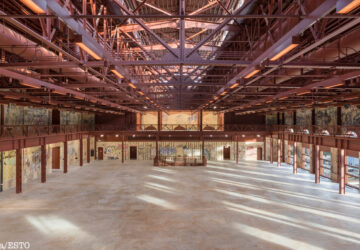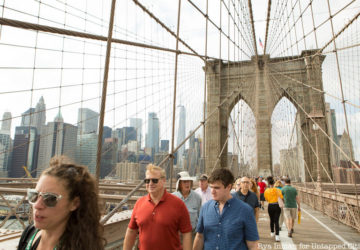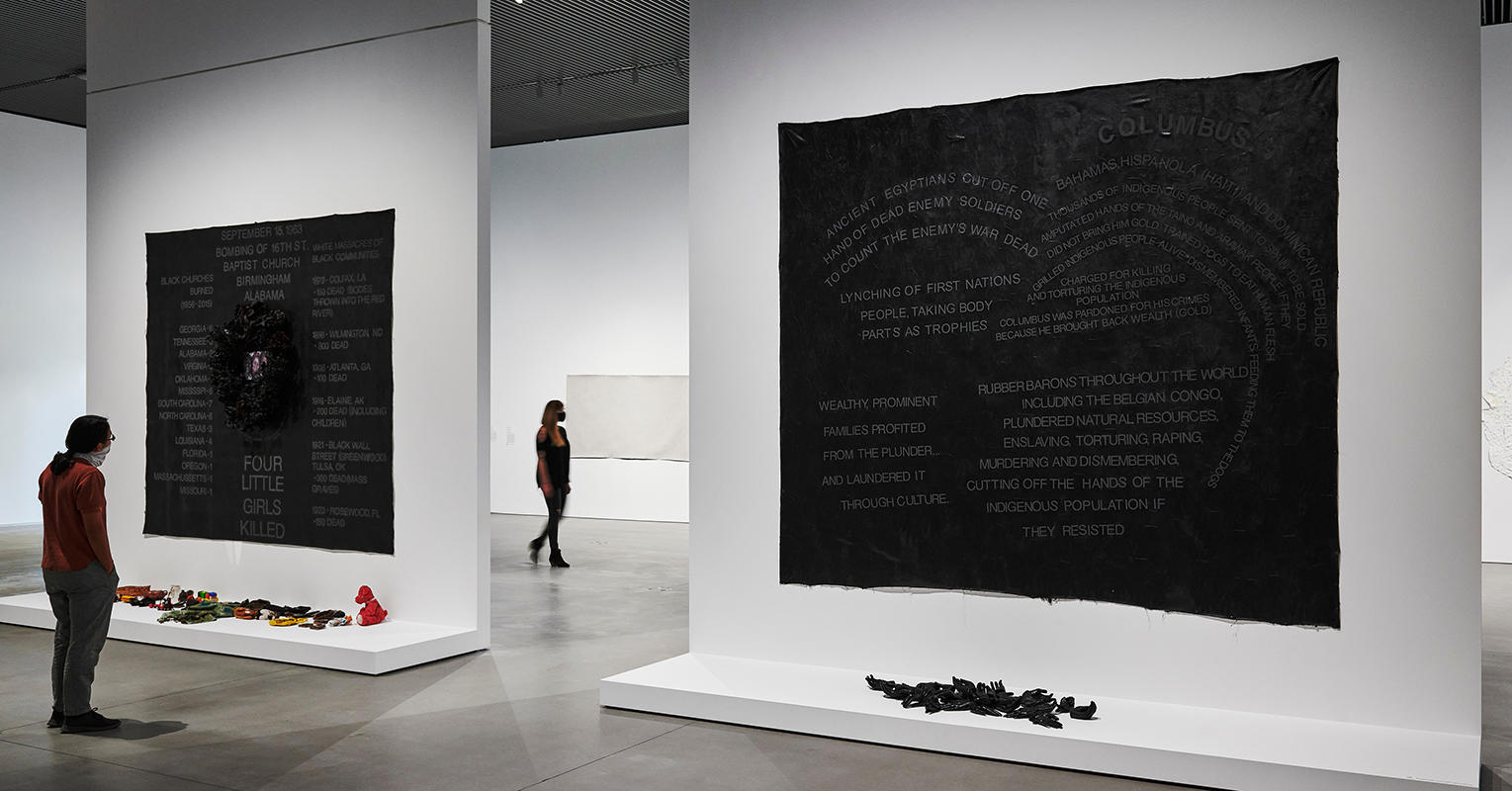The Shed, an independent nonprofit and new cultural institution at Hudson Yards, reopened this October after closing for seven months due to the COVID-19 lockdown. The first exhibit to show is an extremely important and timely solo exhibition by artist Howardena Pindell called Rope/Fire/Water.
Howardena Pindell (American, born 1943), a multidisciplinary artist, activist, critic, and filmmaker who worked at the Museum of Modern Art as one of the institution’s first Black curators, was a founding member of the pioneering, women-led A.I.R. Gallery (1972). Her career spans nearly 60 years. Pindell was raised during segregation and greatly influenced by the civil rights and women’s liberation movements. She currently teaches at the State University of New York at Stony Brook. In 2018, the first major survey of her work was presented at The Museum of Contemporary Art Chicago. Rope/Fire/Water is Pindell’s first institutional solo exhibition in New York City.
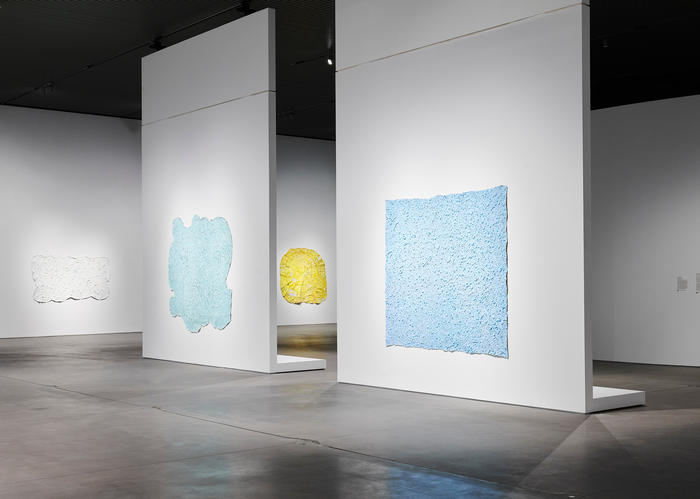 Howardena Pindell: “Rope/Fire/Water” installation shot, Courtesy Kelly Marshall
Howardena Pindell: “Rope/Fire/Water” installation shot, Courtesy Kelly Marshall
Howardena Pindell’s intense artworks shown at The Shed all touch on one single theme, the historical traumas of America, namely slavery, racism and white supremacy. Alex Poots, The Shed’s founding chief executive and artistic director said: “When we started planning an exhibition with Pindell in 2017, we could not have forseen its resonance with this summer’s profound call to dismantle systemic racism and to establish equality for Black lives.”
Slavery is a fundamental issue in the history of America, particularly slavery on its own territory, as well as the expropriation of the lands belonging to the indigenous peoples. Not every American shares the same awareness of this daunting history. Using the example of waterways, Pindell’s painting Canal/Underground Railroad (2015–16) depicts the ways the enslavement of people created the economic empire of New York City. The work which combines text and figurative imagery is accompanied by a set of shackles from Georgia that were made for a child.
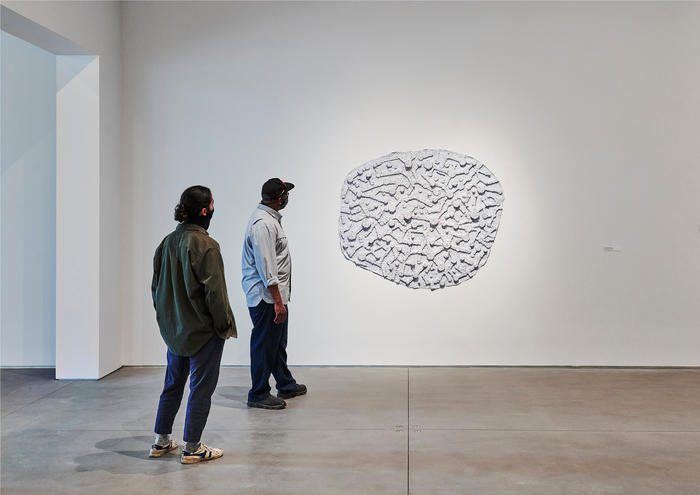 Howardena Pindell: “Rope/Fire/Water” installation shot, Courtesy Kelly Marshall
Howardena Pindell: “Rope/Fire/Water” installation shot, Courtesy Kelly Marshall
Inspired by her own traumatic experience, the video Rope/Fire/Water (2020) – a crucial project Pindell has wanted to create since the 1970’s – is central to the exhibition. It is very disturbing in many ways. The 16-minute long film narrated by the artist herself and accompanied by a ticking metronome not only depicts shocking archival pictures of racial violence – burning bodies and people hanging from the trees – but it also presents some not commonly known facts about America’s brutal racial history. Moreover, one can clearly see a connecting thread running from slavery to the present. For example, mass-produced postcards as a souvenir with pictures of lynching are a part of this dark side of American history. These were widely used up until the beginning of the 20th-century when the U.S. post banned sending postcards with openly violent context. In Pindell’s video, one of the postcards depicting a burning body reads: “This was the Barbecue we had last night.” As part of the film, the artist memorializes those killed during 20th and 21st centuries due to police brutality, and, sadly, new names added for the years 2015–2020; these are presented at the end of the video (according to MappingPoliceViolence.org 104 black people were killed in 2015 and 1,096 in 2019). Pairing historical moments with this list of recently murdered, the work warns of a cycle our American nation continues to repeat.
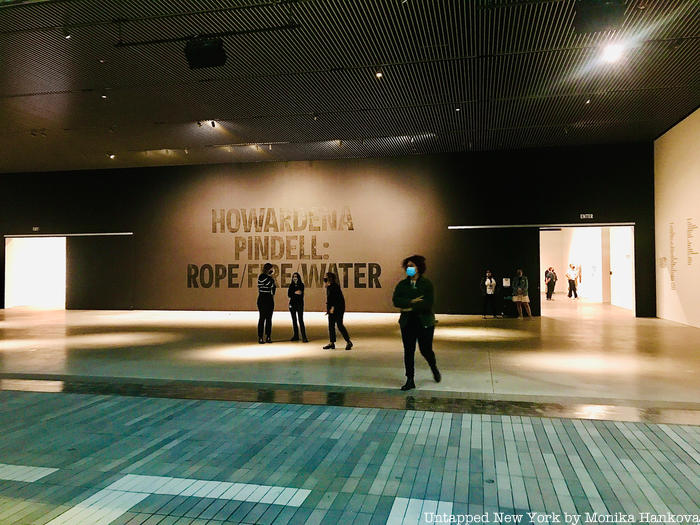
The video is accompanied by two newly created thematic paintings in black, Columbus (2020) and Four Little Girls (2020). As part of Columbus, which brings attention to the enslavement and murder of Native Americans, there are black silicone hands reminding us of a practice used by Christopher Columbus and other colonizers who often cut off Indigenous people’s hands. The latter piece refers to the victims of the 16th Street Baptist Church’s domestic terrorist bombing in Birmingham (1963). The schoolgirls’ deaths became a catalyst for shifting the national response to the civil rights movement and eventually led to the landmark Civil Rights Act of 1964. This artwork (presenting also a list of Black churches burned between 1956 and 2015) is paired with an array of several burned found objects meant to recall what might have been left in the rubble: a teddy bear, a child’s shoe, a scarf.
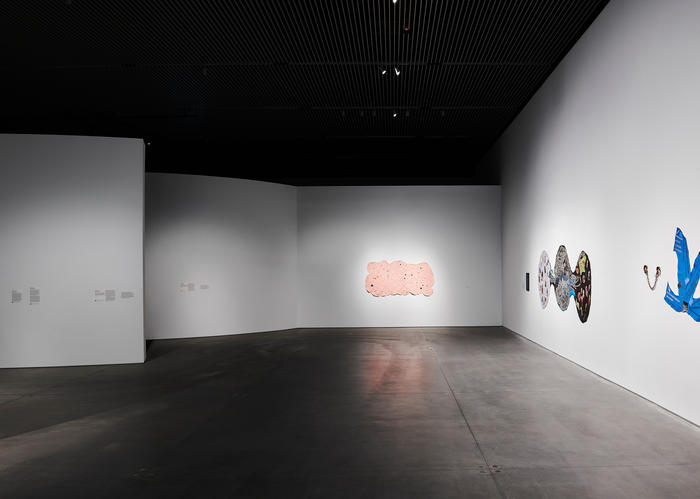 Howardena Pindell: “Rope/Fire/Water” installation shot, Courtesy Kelly Marshall
Howardena Pindell: “Rope/Fire/Water” installation shot, Courtesy Kelly Marshall
After working on traumatic historical projects and engaging with politics and social issues, Pindell’s early works in her signature style – large-scale abstract works on unstretched layered canvases – that, too, are part of the exhibition, offer another perspective. Drawing on the beauty of colors, Untitled series (from the 70’s) surprises with soft pastels and luminosity and gives visitors space to process the painful information learned in the film and thematic paintings. Water acts as both a tool of inflicting trauma on the body and a healing source in recent Pindell artworks called Plankton Lace #1 and Plankton Lace #2 (2020). These pieces lead us toward relief and offer hope for a less violent future.
In celebration of The Shed’s reopening, tickets are free through October 31 (must be reserved online). Beginning November 1, tickets are $10. The exhibition is on view Thursday to Sunday from 11 am to 6 pm; all tickets will be issued via timed entry to limit admissions to 25% of capacity. Howardena Pindell: Rope/Fire/Water will be on display from October 16, 2020 to April 11, 2021.
Next, check out 10 New Public Art Installations in NYC October 2020 and Slavery is a fundamental issue

